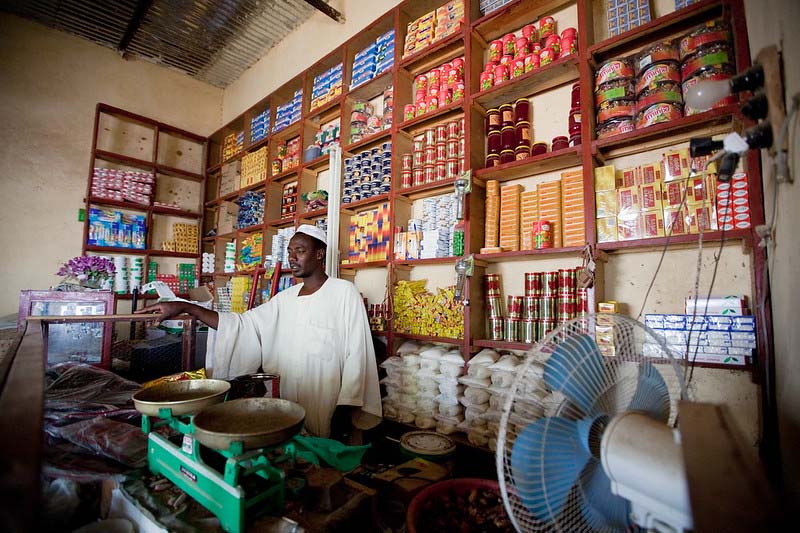UK-funded study: ‘Darfur markets shattered by war, RSF profit from chaos’

A market trader in Darfur (File photo: Albert Gonzalez Farran / UNAMID)
Markets across Darfur have been shattered by the war that broke out in April 2023, according to a new report by the UK-funded Supporting Pastoralism and Agriculture in Recurrent and Protracted Crises (SPARC).
The report, The Impact of War on Trade and Markets in Darfur: Destruction, Resilience and Adaptation, was published by SPARC, a programme funded by the UK’s Foreign, Commonwealth and Development Office.
It draws on three months of data gathered by Sudanese researchers based inside Darfur, who remain in regular contact with traders in the region’s state capitals and rural areas.
“This study demonstrates the dynamic, often fast-moving, impact of the war on markets and trade within Darfur,” the report states, adding that real-time analysis is essential for humanitarian interventions to remain relevant and conflict sensitive.
SPARC describes a region where market infrastructure has been destroyed and trade links severed, leading to rising transport costs and the departure of many large-scale traders.
“Many traders, particularly large-scale traders, have left the business, if not the region,” the brief says. It also reports that the paramilitary Rapid Support Forces have “gained control of more profitable business opportunities”.
The collapse in market integration has fuelled inflation, and many households are struggling to access food and basic goods.
SPARC warns that the growing reliance on market-based humanitarian aid, such as cash transfers, may falter if the international community lacks accurate, up-to-date information.
“Channels of communication between national actors with a presence on the ground and international humanitarian actors with restricted access are constrained,” the report notes.
Full policy recommendations will be developed after six months of data collection, but the researchers are urging international actors not to wait.
“Tracking these dynamics in real time” is vital to protecting livelihoods and avoiding further humanitarian catastrophe, according to the report.











 and then
and then